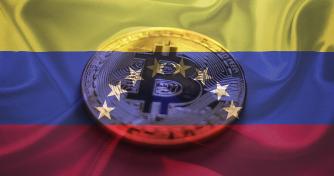Venezuela’s Petro Coin Now on Sale to Residents
Photo by alexandersr on Pixabay
The Venezuelan government announced via Twitter on Monday that its controversial Petro cryptocurrency is now on sale to residents of the country via the official government portal.
#Enterate || El Petro podrá ser adquirido por personas jurídicas y naturales desde su portal web https://t.co/0ldQe5CTHL #PetroNuevaEraEconómica pic.twitter.com/x2gyoncOVd
— Vicepresidencia de Economía (@ViceEconomia) October 29, 2018
An infographic included with the message shows that Petro can now be bought at six government-approved exchanges as well as the government portal. The process will be overseen by the government appointed crypto-authority Sunacrip, whose head Joselit Ramirez will reportedly handle customer service issues with the coin.
Six Exchanges Authorized
The Venezuelan government authorized six crypto exchanges to trade the coin earlier in October, shortly after it first announced the coin and started trading it only for hard currencies before the sale opened to the public. Those exchanges, according to Venezuelan news outlet Noticiero Digital, are Bancar, Afx Trade, Cave Blockchain, Amberes Coin, Cryptia, and Criptolago.
At the beginning of October when Petro was officially announced, Venezuelan President Nicolas Maduro said November 5 would be the official date of availability to the public for the country’s cryptocurrency, whose price is supposedly pegged to the value of Venezuelan commodities, mainly its oil reserves. It’s also pre-mined and sold by the Venezuelan government.
Petro Facing Problems
There appear to be other inconsistencies with Petro. The coin’s official Twitter account was taken down as of this writing, and the wallet made for storing Petro has been blocked by the Google Play store. At first, it was claimed that Petro would be available for purchase with Bitcoin, Litecoin, Ethereum, and Dash, but as of now, the coin is available for BTC, ETH, and a variety of fiat currencies, including the Venezuelan bolivar.
Venezuela’s bid to use the Petro as its national currency has already drawn criticism from the international community, with U.S. officials calling it a “scam” and the White House barring American businesses from accepting the cryptocurrency. Venezuela’s native currency has also suffered devaluation through rampant inflation, and the price of even a few Petro coins adds up to several months of work for most Venezuelan citizens.
Recently in an apparent effort to stem the tide of emigration from the country, Maduro announced that passport fees would only be payable in Petro, along with the installment of a new police force to guard Venezuela’s borders.
That restriction was set to go into effect on Nov. 1, marking a grim deadline for the thousands of people already facing difficulty in their efforts to leave. It also exponentially increased passport fee prices in bolivars earlier in October.



 CoinGlass
CoinGlass 


 Farside Investors
Farside Investors 




























































































